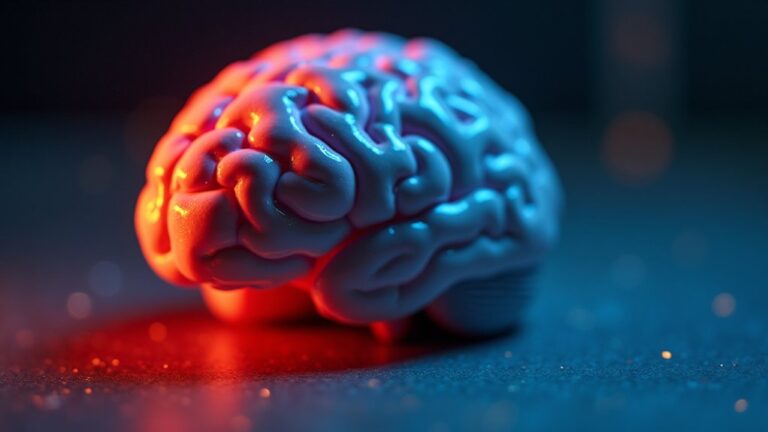People with ADHD often react strongly to unfair situations. Their brains pick up on injustice quickly, sometimes more than others. This happens because ADHD affects how the mind comprehends emotions and details. Small slights can feel enormous, and big wrongs may cause deep frustration. The urge to fix unfairness becomes intense, even when it isn’t their battle. While this can make them fierce advocates, it also leads to exhaustion. Insight into why this happens helps in finding equilibrium.
The ADHD Brain and Heightened Justice Sensitivity
Because the ADHD brain processes emotions differently, many individuals with the condition experience intense reactions to unfair situations. Those with ADHD often struggle with justice sensitivity—a heightened awareness of inequities that feels overwhelming. Their brains lack strong cognitive filters, so they notice every perceived injustice, big or small.
This constant exposure fuels emotional intensity, making unfairness feel impossible to disregard. Whereas others could let minor slights slide, someone with ADHD might feel a deep urge to fight against unfairness. Neurotransmitters like dopamine and norepinephrine play a role too, influencing how forcefully they react.
The result? A brain wired to spot imbalance, feel it deeply, and push for change. Though taxing, this trait can drive meaningful action when channeled thoughtfully.
Neurotransmitter Imbalances and Their Role in Justice Sensitivity
While ADHD is often linked to attention challenges, its connection to neurotransmitter imbalances also shapes how strongly people react to unfairness. Dopamine and norepinephrine play key roles in justice sensitivity, influencing emotional intensity and heightened awareness of perceived injustice. These imbalances can make fairness feel like a pressing need, not just a preference.
Dopamine’s role: Low dopamine levels can drive attention-seeking behavior, sharpening focus on unfair situations and fueling a urge to correct them.
Norepinephrine’s impact: Fluctuating levels disrupt executive functions, making it harder to overlook wrongdoing or move past it.
Emotional amplification: Neurotransmitter imbalances intensify reactions, turning small slights into overwhelming injustices.
The brain’s chemical wiring in ADHD doesn’t just affect focus—it shapes how deeply fairness matters, often making justice sensitivity a defining trait.
Emotional and Behavioral Responses to Injustice in ADHD
Experiencing injustice can feel like a lightning strike for someone with ADHD—sudden, intense, and impossible to ignore. Individuals with ADHD often display heightened justice sensitivity, reacting strongly to perceived unfairness due to their emotional intensity and cognitive rigidity.
Their emotional reactions can include anger, frustration, or deep sadness, while behavioral reactions can range from impulsive outbursts to persistent efforts to correct the wrong. A heightened sense of justice drives them to fix what feels broken, sometimes leading to fixation on justice-related issues.
This strong desire to restore justice, combined with difficulty regulating emotions, can make everyday conflicts feel overwhelming. While their passion for fairness is admirable, the intensity of their response might confuse others, creating challenges in relationships and social interactions.
Challenges and Strengths of Justice Sensitivity in ADHD
A firefighter rushing into a burning structure has the same urgency as someone with ADHD responding to injustice—both act rapidly, driven by a deep need to set things right. For individuals with ADHD, justice sensitivity can be both a challenge and a strength.
Their strong emotional reactions to unfairness often lead to impassioned advocacy, but they may also grapple with being overwhelmed or conflict when others don’t share their intensity.
- The Advocate: People with ADHD frequently become vocal leaders, standing up for those who can’t.
- The Overwhelmed: Sensitivity to injustice can trigger emotional exhaustion, making small issues feel immense.
- The Misunderstood: Their reactions may seem extreme, concealing a deep care for fairness.
While this trait can create problems in relationships, it also fuels a powerful drive to make the world more just.
Strategies for Managing Justice Sensitivity With ADHD
People with ADHD often feel injustices deeply, reacting with a mix of urgency and frustration as they see unfairness around them. Managing these intense emotions requires strategies like emotional regulation through mindfulness and dialectical behavioral therapy, which help slow impulsive reactions. Setting boundaries around advocacy work and media consumption prevents burnout, while a strong support network offers validation and shared resilience. Self-care and self-awareness allow individuals to engage with societal issues sustainably, balancing passion with personal limits.
| Strategy | Purpose | Example |
|---|---|---|
| Mindfulness | Calms immediate emotional spikes | Breathing exercises |
| Boundaries | Protects energy levels | Limiting news exposure |
| Advocacy pacing | Sustains long-term engagement | Scheduling rest days |
Conclusion
While justice sensitivity in ADHD can feel overwhelming, it also fuels powerful advocacy and deep empathy. Some could argue this trait is a weakness, but in reality, it reflects a brain wired to care intensely. Learning to channel this passion—through emotional regulation, boundaries, and self-care—helps turn sensitivity into strength. The key isn’t silencing the response but balancing it, so fairness doesn’t come at the expense of health.





